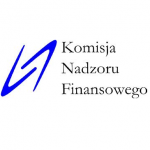
The Polish Financial Supervisions Authority (FSA) has published a statement titled “Standards of Conduct for the Forex Market”. The report covers five points of standards for firms to follow. Among the standards, the first four are your usual rhetoric that you see from regulators, with the fifth one being a potential game changer to the industry. The first four points include rules in regards to promotional materials, evaluating whether forex trading is appropriate for each individual customer, and clearer information that details a firms operations. These statements are similar to points that have been raised among financial regulators in the past few years, most recently in Japan.
The fifth point is in relation to third party technology partnerships and white labels. According to the FSA, the use of outsourcing is becoming more and more popular among brokers in Poland. In addition, the regulator explains that white labels are accepted in the EU through MiFID. However, they added that Polish regulators have the right to determine the specific legalities of MiFID laws within their country. While the FSA approves the use of outsourcing of technology solutions by brokers it has singled out specific relationships as being problematic. At issue are white label arrangements where clients are in essence having their trading and oversight passed along to a foreign broker.
The FSA explained that these are the characteristics of the outsourced arrangements that were at issue:
- orders of clients are placed directly on platforms of vendors (and not the platform of brokerage house)
- orders are (credit) checked and then executed and settled directly on the vendor’s platform, while the brokerage house’ own IT systems are not taking part in that process
- the brokerage house has no rights to the software that is being used, has no right to interfere to the regime of executing trades, correct those trades or cancel filled orders on platforms that is owned by the vendor.
- Financial instruments are being bought or sold on a client’s account without involvement of the broker, but via the outsourced broker
According to the FSA, such arrangements are against the law as the local broker is in fact not involved with any brokering activity, but executions are through a third party. In addition, the FSA explained that using white labels puts brokers in violation of oversight requirements which include the adapting of contingency plans for data recovery in the event of a database crash as well as the opportunity to evaluate hardware and trading infrastructure. However, as the technology and platform is operated by a third party, these requirements can’t be implemented.
Ripples in the Industry
In Poland, prohibiting white labels would have an immediate effect on the country’s number two broker, TMS, which has been a partner of Saxo Bank since 2002. In addition, a recent trend among Polish banks and financial firms has been to enter the forex market. As a result, companies that elected to become white label partners rather than operate their own technology would need to either exit forex or launch their own offerings. While the latter could be done by larger firms, smaller and mid-sized firms that view forex as auxiliary service within their greater trading products will have a tough time justifying the expenses.
In terms of enforcement of the statement, there currently is none. As a statement, the letter is simply the FSA’s method of relating its opinion to the forex market, but doesn’t represent that the regulator will enforce any of the points or that they are being implemented as rules. However, it does direct brokers to the direction the FSA may go in the future. As a result, some executives at Polish brokers are worried that the FSA may in fact look to adopt restrictions on white labels. According to these individuals, what is troubling to them is that the rules that the FSA refers to, were in place in the past, and the regulator had granted licenses to firms with white label arrangements. Therefore, the FSA is viewed as having created the situation in the Polish forex market that it wants to get rid of.
Wider effects
A greater worry of the FSA’s statement is whether such implementation would lead to other country’s regulators taking a negative view about white labels. On one hand it is correct that brokers give up a level of control when implementing white label relationships. But on the other hand, the partnerships provide an efficient method for brokers to offer forex trading to their customers via regulated entities. More than just a model for small firms to access the forex market, white labels are a key product for established financial companies that are seeking to offer forex trading services. Headline examples include FXCM’s signing of E-Trade and Barclays Stockbrokers as white label partners, as well as CitiFX Pro working with Saxo Bank, and HSBC offering forex through OANDA.
As such, these relationships have become part and parcel a staple of the industry. Therefore, any changes to the legalities of such arrangements would be expected to have short term negative effects on the retail forex industry.
Industry Standards
Our thoughts are that rather than regulators placing broad restrictions on white labels, we will more likely see the passing of standards put in place. Examples could be the establishment of partnerships limited to brokers who meet specific regulatory requirements as well as clearer rules on how white labels are monitoring client trades being executed via third parties. Due to the effects of globalizations and cross border trading, the need for standards in the industry has become more important than ever.

While talk about changes to white label arrangements is speculative, one sector that is currently the focus of standards is the platform provider industry. Discussions are revolving around both the retail and institutional markets. Within the institutional sector, EBS recently issued a report about best practices for Liquidity aggregators. In regards to retail, in our Q2 Forex Industry Report, Forex Magnates took a look at the Risk Management features of many of the industry’s third party platform offerings. Among the issues we evaluated were reporting capabilities. With platforms being used among different brokers around the world, firms need to ensure that reporting features meets regulatory requirements. As such, an implementation of industry standards to platforms would benefit brokers that work with regulators in multiple jurisdictions.
Industry standards are also a point that comes up between discussions with Forex Magnates and brokers. Specifically, in regards to accounting details such as the calculation of volumes and customer totals, there is a lot of confusion on how brokers issue figures in different parts of the world. However, as the more that these questions rise, it will lead to more opportunities for standardizing accounting in the forex industry.
Image courtesy of DeviantArt












